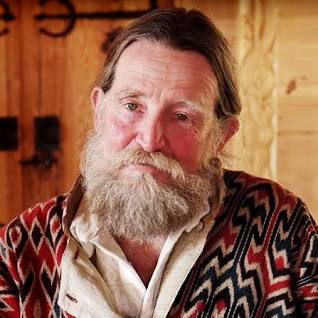Stephen Jenkinson: The Words of the Prophet
- Brian E Pearson

- Sep 10, 2023
- 3 min read

I’m not sure I would have wanted to know the biblical prophets. They were not agreeable people. I was taught in my house, growing up, to be agreeable. Unpleasantness was forbidden as was, at times, telling the truth. The important thing was not just being a good person but also leaving the right impression, like the appearance of being a good person. Which would only have made us fodder for the work of the prophets.
Biblical prophecy is not what we usually think. It’s not about telling the future. It’s about interpreting the present. Only in that sense does it touch on what is to come. If the prophet sees the people’s faith in God wavering, and their reliance upon worldly rulers strengthening, they will point out that this present circumstance will have future consequences, and most likely those consequences will be dire. Prophets were not fun people to have around. They weren’t invited to a lot of parties, with their gloomy perspective and their penchant for theatrics.
Jeremiah once walked around with a yoke on his neck, the kind they used to shackle oxen. Speaking against the false prophets and the political insurrectionists of his day, who thought all would be well if they overthrew the current order, he preached that God had already given Judah over to the Babylonians. Only by accepting their fate, their “yoke,” would they discover that God was still with them.
The prophet Amos targeted the indolent rich, who lay on their beds of ivory and lounged on their couches, eating young lamb and drinking aged wine, refusing in their pride to grieve the loss of their social conscience. Things were not going to go well for them, he railed, for they would be among the first to be carried off into exile, they and the whole nation with them.
And we can’t forget John the Baptist, who welcomed the religious authorities among the crowds who came to him in the desert by saying, “You brood of vipers! Who warned you to flee from the wrath to come?” Nor the lack of tact that cost him his head, when he told truth to power by accusing Herod, the Roman tetrarch of Galilee, of unlawfully divorcing his own wife to marry his brother’s wife.
Prophets seem impervious to the effect of their words, perhaps expecting and even welcoming their hostile reception. What did they think? That speaking the truth would win them friends and gain them an audience in the counsels of the great? Being disagreeable doesn’t open those kinds of doors.
Odd then, that I felt as comfortable as I did, interviewing Stephen Jenkinson for The Mystic Cave. Jenkinson is an original thinker and writer who does not make nice with his words. He grinds them and polishes them, so that they drill deep into the heart and soul of his audience, dislodging former assumptions, crushing outdated ways of thinking, and shaking our confidence in just about everything we thought we knew.
But behind every fiery prophet is a disappointed idealist, someone who is grieving what should be, but isn’t, what could be, but won’t be. And it is that idealism, more than anything else, that we need in our time. Jenkinson invites us to consider how we got here, and why. How have we created a death-denying culture that will extend life at all cost without helping people to prepare to die? Where are the elders of our age, those so desperately missed in action who could be teaching the young about who we are and where we’re from?
If Jenkinson’s ideas are threatening to the status quo, distancing him from us, his storytelling closes the gap. There we discover a thoughtful, sensitive, soulful man on a mission to awaken, engage, and transform us by his words. His music does that too, if you’re fortunate enough to catch him on his current Grief and Mystery world tour.
To listen to my recent conversation with Stephen Jenkinson, press the Play button below. To learn more about this modern-day prophet, click on the Information button and scroll down the page that appears. It will lead you to his web site, which is well worth the visit. It might even change your life.





Great insights; I really enjoyed this podcast. On the topic of how we speak of pantheism, I am a native speaker of Danish. In this language, the 'essence' of animism still exists. One cannot actually engage in Danish (Scandinavian) culture, without speaking of an ancient pre-monotheistic, force. My ancestors were devout Christians, but somehow managed to co-exist with animism, in their language.
I am so glad you are back. Stehen J was refreshing and inspiring. so sorry I didn't know he was in the city. YOur blogs are my spiritual centre to find inspiration and opening of my mind.
thanks Brian
Joan